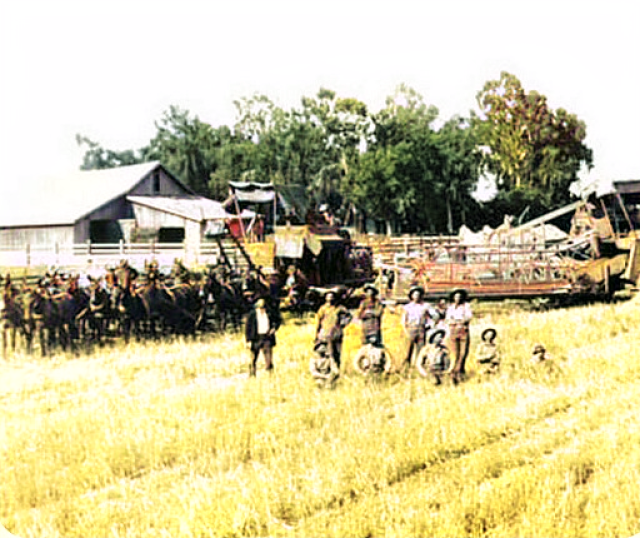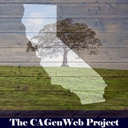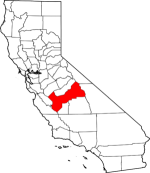Brief
History:
The area now known as
Fresno County was the traditional homeland
of Yokuts and Mono peoples, and was later
settled by
Spaniards during a search for
suitable mission sites. In 1846, this area
became part of the United States as a
result of the
Mexican War.
Fresno County was formed in 1856
from parts of Mariposa, Merced and Tulare
counties. Fresno is Spanish for "ash tree"
and
it was in recognition of the
abundance of the shrubby local Ash,
Fraxinus dipetala, growing along the San
Joaquin River that it
received its name. Parts of Fresno
County's territory were given to Mono
County in 1861 and to Madera County in
1893. The
original county seat was along the
San Joaquin River in Millerton, but was
moved to the rapidly growing town of
Fresno on
the newly built Southern Pacific
Railroad line after a flood destroyed much
of the town.[citation needed]
The settling of Fresno County was
not without its conflicts, land disputes,
and other natural disasters. Floods caused
immeasurable damage elsewhere and
fires also plagued the settlers of Fresno
County. In 1882, the greatest of the early
day
fires wiped out an entire block of
the city of Fresno, and was followed by
another devastating blaze in 1883.
The discovery of oil in the western
part of the county, near the town of
Coalinga at the foot of the Coast Ranges,
brought about
an economic boom in the 1900s
(decade), even though the field itself was
known at least as early as the 1860s. By
1910,
Coalinga Oil Field, the largest
field in Fresno County, was the most
richly productive oil field in California;
a dramatic oil
gusher in 1909, the biggest in
California up until that time, was an
event of sufficient excitement to cause
the Los Angeles
Stock Exchange to close for a day so
that its members could come by train to
view it. The Coalinga field continues to
produce
oil, and is currently the
eighth-largest field in the state.
|



